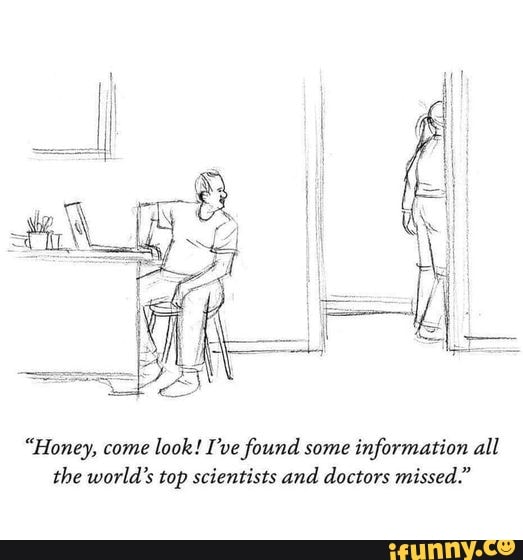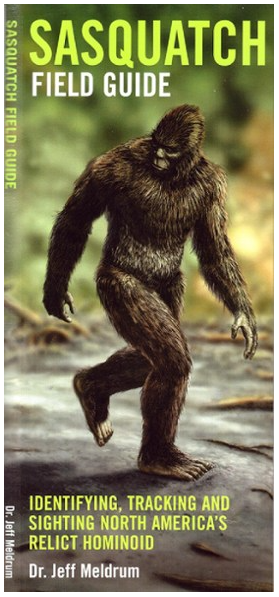The problem with “Do your own research.”

“Do your own research” is one of the most pernicious phrases on the internet. Hucksters use it to fool people. It will lead you astray.
Based on my 20 years as a researcher, I’ll delve into what research actually is, what it means when someone writes “do your own research,” and why it leads to fake information.
What is research?
There are three kinds of research.
- Primary research. This is work that reveals truths that weren’t previously known. For example, medical researchers conducting clinical trials are trying to determine if a compound is safe and effective; the answer is unknown until the research is complete. Social science researchers doing surveys or polls are also conducting primary research. Another form of primary research is ethnographers and anthropologists who observe people in their homes or native settings. Focus groups are another example. Quality primary research sets out to find the truth without preconception or bias — it may either confirm a hypothesis or refute it. Primary research tends to be expensive, since it requires skilled workers designing research tests and observing and interpreting results.
- Secondary research. Secondary research collects and reports the results of primary research. For example, a meta-analysis of studies about obesity would qualify as secondary research — the researchers don’t conduct surveys or trials, they just aggregate and analyze the studies already done. Nate Silver’s election predictions are secondary research since they are based on aggregated polls. Except in the case of investigative journalism, most journalists conduct secondary research, speaking with primary researchers and experts about the topics they write about. Secondary research tends to be far less expensive than primary research, which is why there are more news articles than research studies.
- Bullshit research. A lot of us imagine that we are doing research. For example, we look at ratings for building contractors to determine if they’re any good. We ask our Facebook friends which accounting system to use. Or we start googling to see the latest information about the Delta variant of COVID-19. The results of this “research” are dubious. Google is built to reflect the biases of the searcher. Your friends may have a skewed idea about the truth. Research like this may be helpful in some situations, but it doesn’t unearth truth, it just finds information that may or may not be accurate.
What it means when someone writes “Do your own research.”
Be very wary of people who tell you to “do your own research.”
If someone knows the answer to a question, they should say it and back it up. For example, if a financial analyst says that the target price for a stock is $40, they have a clear perspective on why the stock is worth that price, based on fundamentals about the company. If a medical researcher says that the Delta variant spreads as fast as chicken pox, that statement is based on observations of the infected population and new cases, as compared to similar observations about the chicken pox virus.
If someone does not know the answer to a question and wants you to do something, they may make a statement they cannot back up with evidence and tell you to “do your own research.”
I’ve seen this lately both in recommendations about vaccines and about cryptocurrency.
Do they imagine that you will do primary research, setting up a study or using your expertise to gather primary data about the question, or delving into the fundamentals of the price of Bitcoin?
No. They imagine that you will start Googling and might stumble onto something confirming their statements.
Alternatively, they imagine that you will trust them without checking, since if they weren’t legit why would they invite you to do your own research?
Anyone who says “Do your own research” is a huckster.
Your own research vs. the experts
If you want evidence that vaccines cause problems like autism, you will find articles that say so. They will be out of date and based on poorly designed studies that have been disavowed by their authors, but stuff like that remains on the web.
If you want evidence that there was election fraud in multiple states, enough to flip millions of votes, you will find it. Most of it will be on questionable sites whose research is dubious and biased, but it’s out there.
If you want evidence that COVID-19 is a hoax, you can find that too.

You’ll find pictures of Sasquatch, too.
Searching with Google generates bullshit research. Many sources of information are bogus, but they still show up on Google results. Google’s algorithm will lead you to more of what you already believe, regardless of whether it is true. Add in a dose of confirmation bias — our innate tendency to find information that reinforces what we believe — and you’ll find yourself believing all sorts of questionable things.
There are people known as experts. They study the details of a situation and can give you a more qualified perspective. Medical experts know about diseases. Economists know about the economic outlook. Technology analysts know about software and tech decisions. Financial analysts know about securities. Election analysts know about voters.
It’s not that these people are always right. They can certainly be wrong. But based on their familiarity with the primary research, they are more likely to be right than some random source on the Web, and you can see the evidence that supports their claims. If you find more than one expert, you’ll have more information — but only if you can verify that the people you’re following have actual expertise, not just one-sided opinions.
In times like these, it can be tempting to find truths that don’t require you to get a shot and suffer side effects, or to invest in securities that might go down in value, or to imagine that your favorite candidate might lose. But these are not actual truths, they are just comforting illusions.
Resist the temptation. Follow the experts.
Don’t do your own research and expect to find anything different from what the experts did. And don’t trust anyone who tells you to do your own research, because they’re out to bamboozle you.
We have known for years that google is an extremely weak search engine…are there better ones?
I also think it is important to note that almost all primary research does not meet what I think you mean by the word “quality.” We’ve known that for decades too. I don’t know how to fix that, although I can expand upon clues to when that happens.
Quote from the article: Anyone who says “Do your own research” is a huckster.
My answer: Not always.
Concern trolls will ask a series of questions to eat up one’s time and energy, and rarely do their responses consider the evidence presented or the logical progression of one’s answers. That phrase can be an effective way to handle such people.
You’re not obligated to participate in every demand for your time and energy.
“Do your own research” = “I don’t have a single authoritative source to quote.”
PLEASE. WE ARE ALL IN THIS TOGETHER! We all want the same thing. The best outcome for our loved ones and the community.
Based on this article, am I to assume I am never allowed to question the mainstream message? Should I always just shut up and agree?
It’s incredible that people are believing and accepting that they should not question – AT ALL.
With every medical decision we are encouraged to get a second opinion.
YOU HAVE A RIGHT TO QUESTION – TO FOLLOW UP ON CONCERNS.
The concerns people are sharing are coming from INDEPENDENT LEADING WORLD EXPERTS – from all around the World. Many thousands of them. As well as Groups of Experts. Anything from Dr Peter Mccullough is a good place to start. Considered a Leading World Expert specifically in Covid.
ABSOLUTELY – DO YOU OWN RESEARCH!!!
You ARE smart enough. You CAN trust yourself. You CAN shift through the information and come to your own conclusions.
Do not be afraid.
TOGETHER – WITH RESPECT FOR EACH OTHER – AND THE GOODNESS WE ALL HOLD IN OUR HEARTS – WE WILL GET THROUGH THIS.
No, there is nothing wrong with skepticism in itself…it is healthy and the very first step in research towards finding the truth. BUT….a part of that process is having the humility to recognize and accept when valid evidence is presented that disputes your beliefs and not just outright rejecting what you don’t want to be true…OR being able to present indisputable counter-evidence that can be fully researched, repeated and verified by others (citing a single source, random testimony or anecdotal study isn’t good enough).
Whether or not the so-called “mainstream media” chooses to report on a particular piece of information is irrelevant – it no more disputes widely researched findings and credible information any more than the finding a random article from a susceptible source on the internet validates flawed skepticism. If one chooses to do the latter, then they absolutely should be encouraged to continue to “do their own research” – into the topic of confirmation bias.